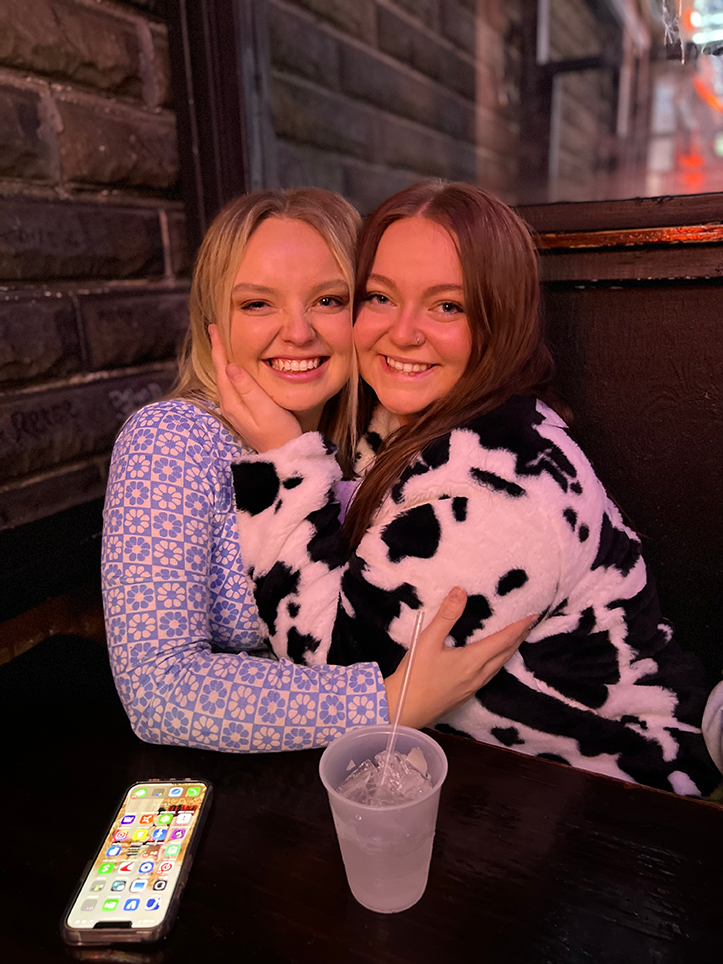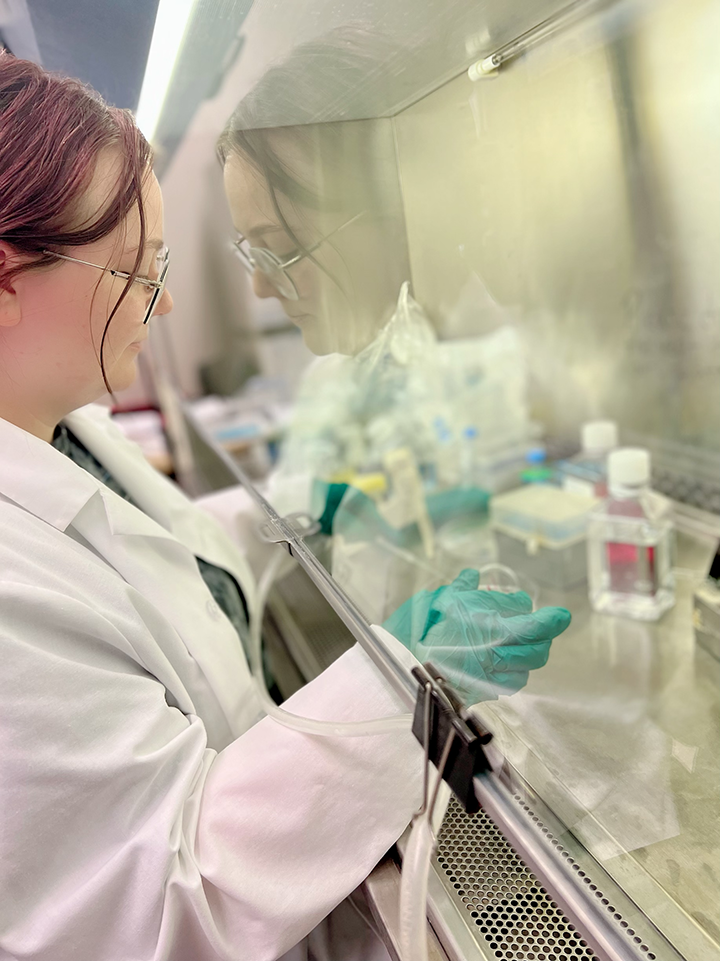
McCarty pursues biomedical engineering to work towards cure for multiple sclerosis

“My freshman year, my sister was diagnosed with multiple sclerosis (MS), and I saw how difficult it was for her to find treatment. I wanted to be the type of person who helps people like her,” Emily McCarty, fourth year chemical engineering student, said.
McCarty is a first-generation college student and before she chose engineering, she didn’t know anyone who was an engineer. In fact, she wasn’t sure what engineers did. She participated in COSI Academy when she was in high school, which opened her mind up to different career possibilities, but she never had the chance to explore chemical engineering. It was not until her sister was diagnosed with MS that her course began to take shape. She immediately recognized a need for improved healthcare around MS and shifted into a focus in biomedical engineering.
McCarty’s college experience has been rooted in helping others. Beyond her sister, McCarty has strived to give a voice to her fellow students. As the student senator for the Russ College of Engineering and Technology (opens in a new window), she wants to create events that allow students to explore their research interests, ensure that students have access to mental health resources and provide spaces where students can vocalize their concerns about their student experience.
“I didn’t always have the space to say, ‘this is great, but these are the things I think I am missing,’ and giving other people that voice will hopefully get students engaged in speaking up about what they need,” McCarty said.
While McCarty works to identify support for her peers, she has actively engaged in her own academic and professional development. In the summer of 2021, she interned with the Jefferson Institute for Bioprocessing in Philadelphia, Pennsylvania.
“This was one of the most rewarding experiences I’ve ever had. I worked in the lab, created presentations and reports, communicated my findings and analyzed results,” McCarty said.
McCarty worked in the bioprocessing industry with the Jefferson Institute, specifically researching how different shaped flasks affected cell growth. In this role, she fell in love with Philadelphia and began to make plans for her next summer internship.
In summer 2022, McCarty returned to Philadelphia to work for Catalent Pharma Solutions, a pharmaceutical company testing and developing pharmaceuticals and gene therapy. To explore life outside of the lab, she got the opportunity to work in their quality department. McCarty reviewed the company’s standard operating procedures and recommended changes to make processes more efficient and more standardized for the entire company.
“Working at Catalent was interesting because it was the opposite experience that I had the previous summer. My first internship was extremely hands on in the lab, but in this position, I got to read and learn about biopharma in general and in a light that most chemical engineers don’t get to see,” McCarty said.
McCarty’s internship at Catalent helped to solidify her path into gene and cell therapy.
“Cell and gene therapy is a possible next step to finding cures for diseases. The goal is to alter cells and genes to fix issues anyone might be experiencing. That is the next step in finding a cure for MS,” McCarty said.
Her career path has been one that she has worked diligently to craft through her student leadership, research and internships. While her final year as an undergraduate student takes shape, McCarty wants to help others see how their goals can take shape too.
“I want to work with Engineers Reducing Anxiety, Stress Etc. (ERASE) to celebrate mental health awareness week because that awareness is lacking in the engineering field. I also want to do a research fair to show people how they can get involved in exciting research opportunities. Lastly, I want to speak up for students in the engineering college and find solutions to their concerns,” McCarty said.
Among the goals McCarty has set for her final year, her top goal is to do things that make her happy.
“I am probably doing more this year than I was last year, but it doesn’t feel overwhelming. It makes me feel fulfilled to do things I enjoy, even if I am doing more,” McCarty said.


